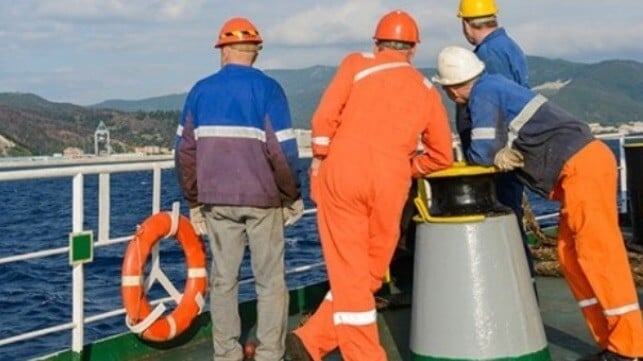Issue of Seafarer Criminalization Highlighted in New Effort by InterManager

InterManager is concerned by the increasingly harsh treatment of ships’ crew in some parts of the world. The trade association for the ship management sector is starting an effort to collect data and highlight to the IMO and other industry stakeholders the harsh treatment of seafarers including the number of cases where seafarers are being “criminalized” for events involving their ships.
“There is a concern within the shipping industry that seafarers are being unfairly detained when authorities find something wrong with their ship, often when drugs are found onboard but also in other circumstances. Most frequently senior officers are detained, although the whole crew can be, and held without charge for long periods of time and often without any proper legal representation or assistance,” said Captain Kuba Szymanski, Secretary General of InterManager.
The initial data compiled by InterManager identified 118 cases of criminalization but it suspects there are many more. The limited initial data it reports shows that the number of cases has increased, peaking in 2023 at 23 cases, with a further 17 in 2024.
They cite as an example, Captain Andrzej Lasota, a Polish citizen, who spent two years in jail in Mexico without a trial. He was charged with “negligence in failing to be aware that the ship he commanded may have been carrying prohibitive substances” after 240kgs of cocaine was found buried in his ship’s coal cargo. The drugs were discovered by a ship’s officer and reported by the master to the authorities after he had stopped cargo work. The whole crew was arrested by armed military forces and held for three months, while Captain Lasota was incarcerated for longer, facing a possible 20 years for drug trafficking. He was eventually released from a harrowing jail term of 592 days without charge, in poor health, and having lost over 50 pounds in weight.
There are other similar examples of crews being held in Europe after the discovery of drugs aboard their vessels. Turkey sentenced a captain and the vessel’s first mate to long jail time when cocaine was found on their ship. India held the crew of a Vietnamese cargo ship for a year without charges when cocaine was seized from the ship during a port call. It led to one engineer jumping overboard in an apparent suicide attempt and after 12 months the crew went on strike to win its release.
“No one deserves to be treated like that while just going about their daily work,” said Capt Szymanski. “This is an issue which needs to be addressed at the highest levels, and we are pleased to see the IMO taking seafarers’ concerns seriously on this matter.”
The association reports that senior officers are most at risk of criminalization. Statistics collected so far it says reveal that in 63 percent of cases, the ship’s master was the one imprisoned. Tanker crews represent the most frequent vessel type on which arrests occurred (29 percent), followed by bulk carriers (19 percent), and general cargo vessels (14 percent).

that matters most
Get the latest maritime news delivered to your inbox daily.
Criminalization occurs across the globe says InterManager. Cases are most frequent in Asia, with a significant number occurring in both Europe and the Americas.
InterManager plans to collate statistics on criminalization incidents and is asking others to submit information. It plans to share the data with the International Maritime Organisation (IMO) and other shipping industry stakeholders.
